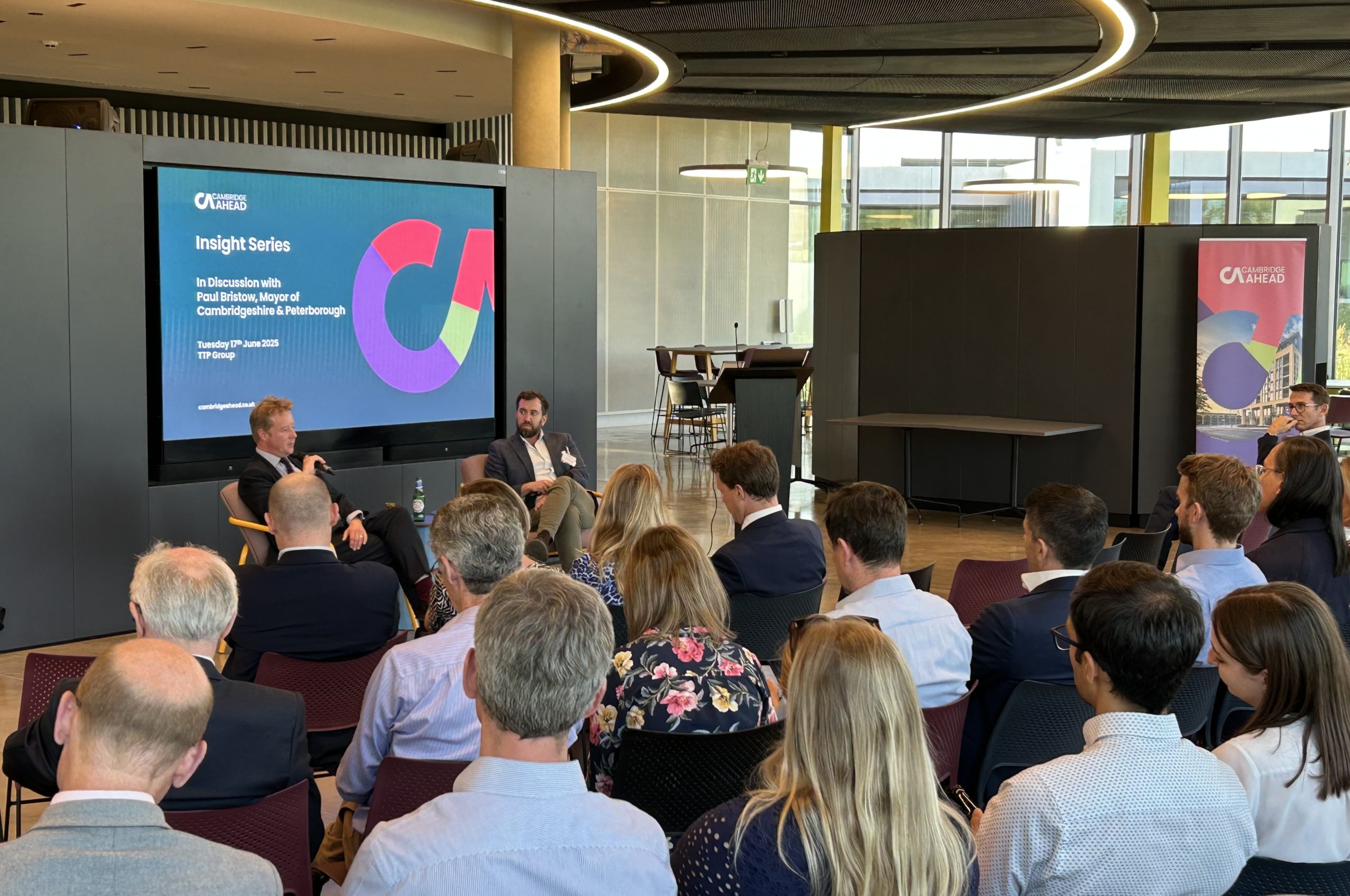In this blog piece, we explore some of the findings of our most recent ‘Future of Work’ survey run in May 2022, completed by over 200 under-35 year olds working in our member organisations, and a subsequent roundtable between employers and employees held in June 2022. The majority of those surveyed can carry out their work remotely, reflecting the job roles our membership comprises.
Potentially to the relief of office owners and company bosses, our survey of over 200 under-35-year-olds from Cambridge Ahead member organisation showed that most of our respondents are now back in the office part or full-time. 94% of our respondents report being back in the office one day or more per week. However, nearly half of those respondents are only in the office one or two days per week.
So, while most respondents have returned to the workplace, they are certainly not in the office full-time. Why is this? This summer, we convened a roundtable with local employers from public, private and third sectors, including recruiters and co-working space providers, to discuss this further.
We discussed why some people were desperate to return to the office and why others might be keener to remain at home. We considered that much of this was down to age, personality, circumstances at home, employer expectations and the office environment. Anecdotally, younger people were keen to get back to the workplace to make the most of high-quality office equipment and career development opportunities. People who don’t have a home office or adequate home working facilities, such as strong wi-fi, were keen to work from the company office. However, whilst younger staff are looking to return to the office to meet others and improve their development opportunities, there was some concern that senior staff were not always around to provide them with support and mentoring opportunities.
We explored how local employers have responded to the pandemic and whether businesses have been encouraging hybrid working. We found that over 75% of respondents stated that their employer has made changes to the workplace to accommodate a hybrid working model. In practice, these adaptations range from hot desking, home desk set-ups and tech support, to more trust and tolerance from the boss. Some employers have even encouraged staff to work from home more to improve the work-life-balance and to free-up space in the office. Free lunches (if there is ever such a thing?) and free drinks have also been laid on to entice people back.
Most of our respondents still seem to think that they should be in the office, for at least some of the time during the working week. At our roundtable, we heard from one younger employee who suggested that credit was given for still being physically in the office and that this created a sense of anxiety that working from home required them to be immediately responsive, in case they were perceived not to be working. Evidently, better communication across business leaders, middle managers, and younger employees could help to resolve these challenges, which are often exacerbated by miscommunication.
However, the survey results and roundtable discussion also revealed that discussion around new ways of operating for the future are far from settled.
Best of both
Corresponding to our previous surveys, the sweet spot seems to be 2-3 days working from home. Most of our respondents have become liberated from the office since the advent of COVID-19 two and a half years ago. They have the freedom to choose their place of work throughout the week and 87% stated that flexible working had made a positive change to them. Initially commentators feared this was the end of the office and bosses worried whether their staff would ever come back. The reality, as ever, isn’t black or white. People want the best of both – the freedom to work from home, whilst embracing the return to the office. This flexible work culture looks set to be the future.
It was clear from our research that this remains a live discussion within organisations. Challenges remain around establishing transparent and trusting relationships between organisations and their younger employees, in addition to maximising productivity, whilst working in different spaces.
For Cambridge Ahead’s Future of Flexible Working Sub-Group, this state of play is just the latest insight from a series of surveys and roundtable discussions that have been conducted since 2020. We have now established a process by which organisations can contribute to and continue to discuss these issues with young people on an ongoing basis. We hope this ongoing research will provide a regular forum for discussion between business leaders and younger workers in the city.
Liam Ronan-Chlond is Head of Engagement at Socius, the mixed-use developer behind the Devonshire Gardens project in Cambridge, and a member of Cambridge Ahead’s Young Advisory Committee.





